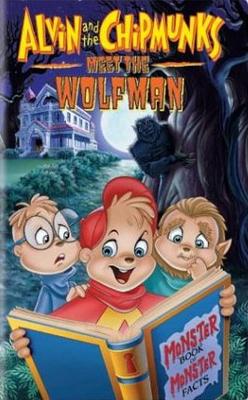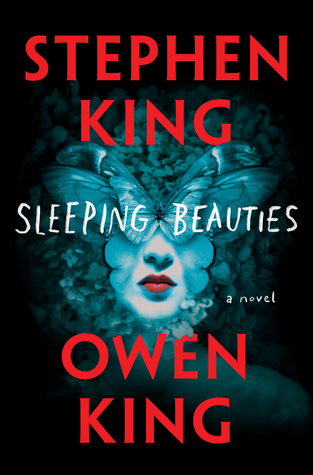Content note(click for details)
Content note: harm to children
Auntie Roberta landed badly on the roof of her escarpment house, scraping her knees across the flagstone shingles and splitting her pantyhose. Her arms were too full of black water to keep her balance so she nearly slid off the edge.
She carried so much ocean she barely knew where to hide it all. Inside her stony home, she filled the kitchen drawers and cupboards with cold dark brine. Every pot and tankard as well. She quickly ran out of places, yet her weary arms were still loaded with the stuff. Where would it all fit? Auntie Roberta got on her knees and stuffed the final bits of ocean into the mouse holes. She heard the panicked mice squeak before drowning.
What an exhausting evening she’d endured. At the appointed hour, all the Aunties of the world had banded together like a swarm of locusts, and set upon the heart of the ocean. Their grubby hands tore the water apart, breaking up the reflection of the moon as they scrambled to load every last drop into their arms. All along the empty ocean floor, fish flopped and ships jammed into rock beds. The neighbours had called the Aunties’ bluff, refusing to give in to their demands. So, just as the Aunties threatened, they stole the ocean.
During the theft, Auntie Roberta kept close watch on the other Aunties, noticing none of her sisters carried away as much ocean as she did. Auntie Roberta always did more than her fair share and never received thanks. The other Aunties thought they were smarter than her, but really they were just lazier.
“Hey!” Auntie Robert shouted. “Get away from there!”
A burr covered cat with collapsed ears sat on the kitchen table, lapping away at a mug filled with ocean. Auntie Roberta flung a wooden spoon and sent the cat retreating through a gnawed hole in the parlour wall.
“Sneaky thief,” she huffed.
***
“It smells damp in here,” the neighbour woman Marilyn said. She didn’t outright accuse Auntie Roberta of helping to steal the ocean, but she certainly sounded suspicious.
Normally, Auntie Roberta threw rocks at nosey neighbours, but the neighbour woman Marilyn came bearing a freshly baked pie and, well, Auntie Roberta didn’t know any spells strong enough to compete with flawlessly executed baking.
“Roof leaks when it rains,” Auntie Roberta said, stuffing pie into her mouth with both hands. “Makes the house damp. Can’t do nothing about it.”
The neighbour woman Marilyn pointed to the ceramic mugs, each filled to the brim with a curious liquid the colour of midnight. “What’s in all these?”
“Coffee what’s gone off.”
The neighbour woman Marilyn put her nose to the rim and breathed in the scent of salt and seaweed, triggering memories of her uncle’s tugboat and the baskets of crabs she helped haul from the deep.
Auntie Roberta licked the last of the crumbs from the bottom of the pie pan and the neighbour woman took her cue to leave. A neighbour had nothing to fear in the house of an Auntie so long as she was eating, but once an Auntie’s belly was full, staying under their roof was like leaving your head in a lion’s mouth–sooner or later the jaw would get tired and CHOMP.
Auntie Roberta washed her sticky lips in a mug of the ocean, breaking up the reflection of the midnight moon that continued to shine from the still water.
***
Word of their victory reached Auntie Roberta in her rain barrel: “The neighbours have agreed to our demands. Therefore, return your section of the ocean back where it belongs.”
Auntie Roberta took stock of the ocean squirreled away all over her house and wondered how on earth she’d manage to carry so much. She couldn’t believe she had done it the first time.
“Looks like I’m making two trips,” she grumbled.
To distract her mind from the inconvenient task, she looked forward to the coming spring. At last, no more sneaking around or disguising her identity. No more inventing schemes to trick the offspring into entering her service. Thanks to the ocean theft, this year the Aunties could snatch up whatever offspring they desired and the neighbours couldn’t lift a finger in protest. It had been agreed.
***
The sight of the returned ocean astonished Auntie Roberta.
“Are we joking?”
The returned ocean sat miles below its original level. The water had gone off, turning grey as stale root-brew. Auntie Roberta saw all sorts of detritus swirling in the stunted ocean; cobwebs, bits of crayon, pocket lint, silky upper-lip hair… You couldn’t even see the reflection of the moon anymore. It was an embarrassment. The Aunties left the ocean looking torn apart as a robbed grave.
The original genius of their plan, having every Auntie take part (for how could the neighbours track down and punish a million Aunties?) turned out to be its greatest weakness, for while a dozen Aunties will be cunning and precise, two dozen will be absent-minded and deceitful. Harvesting the effort of every Auntie in the world? Good Lord. The neighbours ought to be thankful there was any ocean left.
***
The day after, Auntie Roberta lay on her roof, camouflaged beneath a blanket of shingles, her arms loaded with rocks to repel the invading neighbours she was sure were coming once they switched on the morning news and got a look at the mess the Aunties had made of their beloved ocean.
Not a single rock needed to be thrown. The angry neighbours never came. Instead of seeking retribution, the neighbours gathered together as a community and held a day of mourning for their once vital ocean.
No action would be taken against the Aunties. The neighbours would honour their agreement, terrified if they reneged the Aunties would rise up and do something even worse.
That evening, Auntie Roberta smelled fresh bran muffins and opened the door on the neighbour woman Marilyn. Auntie Roberta stuffed muffins into her mouth, famished after spending all day on the roof with nothing to eat but the occasional low flying sparrow.
The neighbour woman Marilyn lifted a mug from the kitchen table. A bit of the ocean remained inside: a mouthful’s worth. The neighbour woman Marilyn swirled the mug, making the ocean race around the ceramic walls like a fat, black worm.
“I’d never looked closely before at how beautiful it was,” she said.
Auntie Roberta kept quiet, unwilling to admit her involvement in the ocean fiasco.
The ocean in the mug retained its midnight colour, and when allowed to pool the reflection of the moon shone brightly, dancing on the wall like candle flame.
“May I keep this?” the neighbour woman Marilyn asked. “So that one day my grandchildren can see what the ocean used to look like?”
Auntie Roberta’s full belly made her agreeable, and she waved her hand generously. “I suppose so, on the condition of future baking.”
She watched the neighbour woman Marilyn carry the mug down the escarpment, clutching it between her hands, not wanting to spill a precious drop of the original ocean. Neighbours made a bad habit of deifying things. Such reverence for objects made them easy to take advantage of.
***
When an Auntie grabbed an offspring, they performed a series of alterations to make the offspring more compatible with their needs. Some were muted. Others had their limbs lengthened or shortened. A few had their eyes cut out in order to heighten their other senses.
Auntie Roberta modified her offspring by burning the hair down to stubble, compacting the feet into cloven hooves, and replacing the teeth with chunks of rock. This kept the neighbours from recognizing their darlings when Auntie Roberta sent them into town to purchase necessities. She didn’t mind the extra work. She re-sculpted the offspring so effectively that even if their mothers did recognize them, their mothers always let them go, correctly believing they were beyond hope.
For days, Auntie Roberta waited in vain for fresh baking. Because of the damage done to the ocean, the temperature soared and there was scarcely air to breathe. Few neighbours could make the trip up the escarpment. There were no more markets and all the stores were closed. The moon did its best to keep the tidal waves in effect, but the new handicapped ocean could no longer provide the neighbours with the luxuries they had taken for granted all these millennia.
Before the receiver in her radio went out, Auntie Roberta heard about the neighbours’ pitiful attempt to rehabilitate the ocean. They emptied the tank of every aquarium and science lab. They hoped these fish would adapt to the new environment. “Nature will find a way” was the motto. Over the next thousand years, the fish might evolve into new species–guppies the size of whales–that would clean the waters and make the ocean once again capable of reflecting the moon. No neighbour alive would live to see that day, but maybe the children of their grandchildrens’ children would know the ocean as their ancestors once had.
Auntie Roberta allowed none of this tumult to affect her. So long as her house remained protected and she had her latest offspring to aid her daily tasks, she could endure anything.
The other Aunties, however, decided the neighbours had suffered long enough, and so they began bartering back the other half of the ocean.
***
Auntie Balut came to visit, trekking up the escarpment on the back of her long-legged offspring. The sunburned beast of burden collapsed after delivering her master. Auntie Roberta found an old can of stewed tomatoes. She cracked the tin and slowly fed the convulsing offspring the life-giving water inside. The last thing Auntie Roberta wanted was for the offspring to croak. With no one to carry her down the escarpment, lazy Auntie Balut would declare herself a houseguest and expect to be waited on hand and foot. The trouble with Aunties was their obnoxious insistence on making themselves at home.
With her shoes off and her bare feet propped on the kitchen table, Auntie Balut showed off the fine jewelry swaddled six layers thick around her neck. “This here had been in the family seven generations. And this here? They actually had to break into the mausoleum to strip it off the body.”
All the Aunties were rolling in wealth, for each held back a parcel of the ocean, stowed away in a kitchen drawer or under the bed like an antique vase they were waiting to appreciate.
“I could ask for all ten of their fingers, and they’d happily slice ‘em off with one hand and then wedge the knife between their teeth to slice ‘em off the other.” Auntie Balut dumped a purse of chopped fingers onto the table to prove she spoke no hyperbole.
In these harsh times, a bucket of the original ocean went a long way, and so the Aunties made out like bandits. The neighbours learned to extract threads of algae and encourage new growth. They pulled tiny fish from the black depths, happy to see new schools spawned the next morning.
Most impressive of all, when the sun set and the neighbours’ pitiful hovels were cast in darkness, their bucket of original ocean reflected the bright full moon just as it had shined the night the ocean was stolen. Whole families from age eight to eighty circled the bucket, hypnotized by the twinkling light and fortified by the fresh air.
When Auntie Balut finished crowing about her recent windfall, she looked around Auntie Roberta’s kitchen and her mood turned dour. Auntie Roberta had no mounds of jewels or ancestral skulls or even piles of snipped-off fingers to attest to profitable negotiations for her share of the ocean.
“Oh sweetie,” Auntie Balut said. “Did it not occur to you to keep a bit of the ocean for yourself? You know, to make a little—” she rubbed her fingers together in the sign of filthy lucre. Auntie Balut threw her head back and cackled till she broke wind, relishing the embarrassed look on Auntie Roberta’s face.
“You put all your ocean back? What, was someone supposed to spell out what we were really up to?”
Auntie Roberta held her chin high, waiting for Auntie Balut to laugh herself out. Instead, the laughter and the insults intensified, turned mean. “Maybe you gave the neighbours ocean freely. Maybe you love them more than your own Aunties.”
When she’d had enough, Auntie Roberta retrieved her knife from beside the whetstone and went outside. On the lawn, Auntie Balut’s offspring slept heavily, full of tomato water and dreaming of its old life. Auntie Roberta swung her knife, ripping the throat open from ear to ear, effectively bringing the offspring’s service to an early retirement.
“Leave all your jewelry on the table,” Auntie Roberta said as she wiped her bloody hands on her apron. “That should lighten you up enough to carry your own fat ass down the escarpment.”
***
Ages had passed since Auntie Roberta last paid someone a visit, so she intended to do this one right. Instead of squeezing herself into a ball to roll down the chimney or gnawing her way through the tasty kitchen floorboard, Auntie Roberta clicked her heels together on the front porch’s WELCOME mat in a perfect parody of one of the neighbours. She even brought a gift.
“Good morning,” Auntie Roberta said, proudly displaying a tray of baking. She hadn’t the right ingredients for her cookies; mostly sand and flour made from crushed mice bones, held together with spit and tomato water. She decorated the tops with broken Christmas lights.
The neighbour woman Marilyn nodded, and ushered Auntie Roberta inside. She had shorn her head bald, and her dry skin wrinkled like an impression of an alligator.
“Is your husband at work?” Auntie Roberta asked.
“No,” the neighbour woman Marilyn said, casting her eyes to the bloodstained hole blasted into the wall over the couch.
“Too lazy, is he?”
The neighbour woman showed no interest in the cookies, so Auntie Roberta snatched a couple and tossed them into her mouth. The glass crunched and made colourful clumps between her teeth.
She cut to the chase. “Have you still got it?”
The neighbour woman Marilyn nodded. “Have you come to take that from me too?”
Auntie Roberta reached for more cookies. “Things freely given cannot be taken back. But there’s nothing to stop us from making a trade.”
“What could you possibly have to trade me?”
The last of the cookies flew into Auntie Roberta’s mouth. “Anything you’d like, so long as you’re not too greedy.”
“Too greedy?”
“Meaning ask for one thing, not a dozen.”
She licked the empty tray and tossed it into the corner. The ceramic shattered, sending white shards flying like punched out teeth.
The neighbour woman Marilyn closed her eyes. Praying? Thinking? After a moment of privacy, she nodded and said, “Come with me.”
Stuffed animals made a pyramid on the too-tiny bed. Auntie Roberta’s back ached to see a bed that small. She would have to saw her legs off to fit, and there would be no room for the occasional late night company. The heads of plastic dolls crunched beneath her feet. This was a gaudy, immature room.
The neighbour woman Marilyn reached beneath the bed, retrieving a lunchbox painted over with frolicking cartoon animals. The frivolous object offended Auntie Roberta’s sensibilities, but the neighbour woman handled it reverentially, as though it were part of a daily religious ritual.
She split the box open and removed the Thermos rattling inside. Before passing the pink canister to Auntie Roberta, she held it to her chest, resting the lid against her cheek. Auntie Roberta thought she looked ridiculous, like a chimpanzee fooled into accepting a surrogate dolly.
“At night, I’d unscrew the lid, and moon light would cover the ceiling. We used to lie on our backs and watch the light ripple. She said it looked like friendly ghosts.” The memory pained her, and she thrust the Thermos towards Auntie Roberta. “It sings to me at night, begging to be let out, but I’m afraid it will evaporate and I’ll be left with nothing.”
“Relax, I’ve handled ocean before.”
At the front door, with the Thermos tucked snugly into her apron, Auntie Roberta lingered, about to suggest the neighbour woman continue to visit her little house on top of the escarpment. She could bring fresh bread, baked on the rocks in her yard. Neighbours often made feeble attempts to befriend Aunties, either out of awe or fear, but such partnerships were forbidden. This was a new world, however, and Auntie Roberta didn’t feel like she needed to play by the rules anymore.
She turned back, about to extend an invitation, but changed her mind. The light in the neighbour woman’s eyes, dim when she first arrived, had now gone out completely. She was a woman without hope, and Auntie Roberta knew she would never see her again.
***
Using steady, freshly licked fingers, Auntie Roberta poured the ocean into a hollow glass amulet the shape of a spider with its legs ripped off. She sealed the amulet tight and hung the chain over her neck. Ice coldness stabbed her breast and she shrieked. Unexpectedly, the ocean remained as cold as it had been the night the Aunties scooped the water up.
“You’re a tenacious bugger,” she saluted the ocean.
The heavy amulet swung from her chest proudly. No Auntie could laugh at her now, like stupid Auntie Balut had done. The ocean around her neck proved she was just as devious and cunning as the lot of them. She couldn’t be mocked—just so long as the embarrassing truth of her giving the ocean away to a neighbour woman (and having to pathetically make a deal for it back) stayed secret.
“I didn’t trade mine away for useless trinkets. I still got my piece of the ocean.”
All that was left now was for Auntie Roberta to fulfill her end of the trade between her and the neighbour woman.
“It’s a goddamn shame,” Auntie Roberta said.
The offspring stirred at the sound of her approaching footsteps. For practical purposes, Auntie Roberta kept the offspring crated beneath the basement steps when she went out. So much easier than worrying what mischief they were getting up to in her absence.
Auntie Roberta paid dearly for the return of her dignity. She knew this offspring was the last she’d ever have in her service. Without the ocean, the land was mute of the sound of copulation. Neighbours were unwilling or unable to create future offspring.
“I promised your mommy a strange mercy.”
Auntie Roberta slid the block of wood from the crate door. Her apron held the same knife used to cut the throat of Auntie Balut’s offspring. Used properly, it would do the job just as the neighbour woman Marilyn had demanded:
“Release my daughter from your service, quickly and painlessly,” she had said.
She must have thought Auntie Roberta would use a spell, giving her daughter a final dream of their happy family on a clean ocean before magically stopping her heart. Charming, that the neighbour woman thought spells came as easily to the Aunties as snapping their fingers, but no. Auntie Roberta wasn’t going to waste the effort of a spell on the offspring.
“Come to Auntie.”
The offspring remained in the cramped crate. Normally so eager to get out, this time they crouched on their elbows and knees, eyes opened wide. Monkey noises came from their throat, contractions that normally turned into… what, cheers? Laughter?
In the darkness of the basement, the reflection of the moon beamed from Auntie Roberta’s amulet, shimmering over the steps, filling the crate with its cool, blue light.
“Oh, you like that, eh?”
Auntie Roberta lifted the amulet. The reflection of the moon brightened the clay wall. The offspring rolled onto their back, looking up at the light as it rippled and twinkled, dancing across the wall like friendly ghosts. Purring softly, the offspring threaded an arm into the dirt, cuddling the imaginary mommy tucked lovingly beside them.
Auntie Roberta twirled the amulet between her fingers, sending the moonlight gleaming all over the basement. She hated her sisters, the rest of the Aunties. Since the inception of the universe they had a glorious, renewable pool of fresh neighbours that provided them with everything they needed to survive. And they’d fucked it up irreversibly and for what? A fleeting moment of superiority? Untold riches for the cleverest of speculators? Well, that worked out just great, hadn’t it?
“What a goddamn shame.”
With the last of the shimmering ocean lying cold against her breast, Auntie Roberta pulled the knife from her apron and held up her end of the trade, completing the task faster and more mercifully than any spell she might have cast.
© 2017 by Chris Kuriata
 Chris Kuriata lives in St. Catharines, Ontario. His short fiction about elderly poisoners, whale-hunting clowns, ghastly family photographs, and childhood necromancy have appeared in many fine publications. You can read more about his work at www.chriskuriata.wordpress.com
Chris Kuriata lives in St. Catharines, Ontario. His short fiction about elderly poisoners, whale-hunting clowns, ghastly family photographs, and childhood necromancy have appeared in many fine publications. You can read more about his work at www.chriskuriata.wordpress.com
If you enjoyed the story you might also want to visit our Support Page, or read the other story offerings.





 Sleeping Beauties is a drama/fantasy/action novel written by Stephen King and Owen King published in September 2017 by Scribner.
Sleeping Beauties is a drama/fantasy/action novel written by Stephen King and Owen King published in September 2017 by Scribner.


 A runner, writer, reader, teacher, and parent, Daniel
A runner, writer, reader, teacher, and parent, Daniel